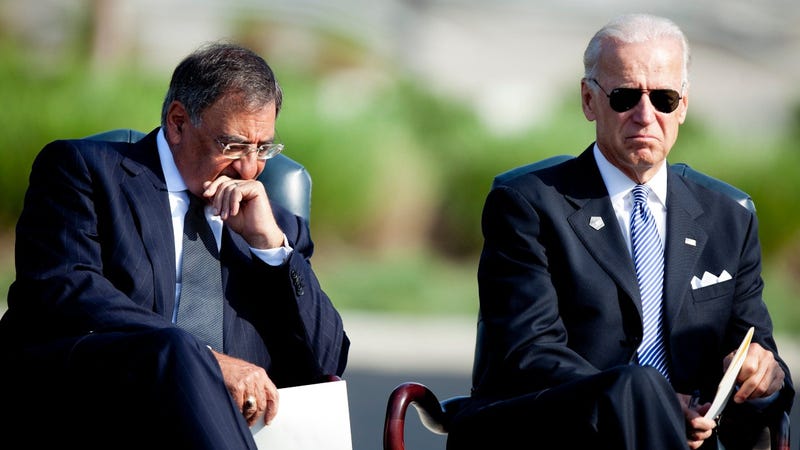
Former U.S. Secretary of Defense and CIA Director Leon Panetta admitted Monday that the American withdrawal of armed forces from Afghanistan likely always would've ended with the Taliban regaining control of the country, but he also criticized the Biden administration's "execution of that decision."
"I think it's clear under any possible strategy, the likelihood was that we would see the same result," Panetta, Chairman of the Panetta Institute for Public Policy at Cal State Monterey Bay, told KCBS Radio’s Rebecca Corral moments after Biden spoke.
"I think the area that concerns most people, however, is not the decision. It's the execution of that decision, and what we're seeing now happening in Kabul, what we're seeing happening at the airport, represents a chaotic situation that should've been better planned and better executed," Panetta added.
President Joe Biden said Monday afternoon from the White House he stood "squarely behind" the decision to end America's longest war, also admitting the Taliban regained control of Afghanistan far sooner than U.S. officials expected. The president took no questions from reporters in the East Room.
Panetta led the CIA under President Barack Obama between 2009 and 2011 and then served as his Secretary of Defense from 2011 to 2013. In January 2013, Panetta met with then-Afghan President Hamid Karzai and said at the time that the American-led coalition had reached the "last chapter" of ensuring Afghan security forces could defend their country.
Federal documents published by The Washington Post in 2019 indicated high-ranking U.S. officials publicly exaggerated the success of American success in Afghanistan and privately knew the war to be unwinnable. As of April, over 2,400 American service members had been killed in the conflict, along with over 47,000 Afghan civilians and 66,000 Afghan military and police.
By Sunday, within months of Biden announcing in April his administration would move forward with a withdrawal of troops agreed to by the Trump administration, the Taliban had taken the Afghan capital of Kabul and President Ashraf Ghani had fled the country. U.S. officials said at least seven people died at Kabul's airport on Monday as thousands of Afghan civilians rushed its runway in an effort to escape.
Panetta said he wished Biden had been more specific about the administration’s plan to evacuate American forces, Afghan allies – to whom he said "we owe a great deal" – and other people the U.S. plans to resettle.
"I do think that the president made clear to the Taliban that if they were to attack our forces during this period that we would do everything to defend ourselves, and I think that's an important message to send," Panetta said. "But we need to know the steps now to try to restore security, restore order (and) conduct this evacuation of not only the Afghans but also of our troops."
Panetta said he believes there will be lasting consequences of American withdrawal and the subsequent Taliban takeover, including a worsening humanitarian crisis – especially for women and girls – and looming questions about American "credibility" in the eyes of military allies.
The U.S. will also have to contend with the ramifications of failing one of its primary military objectives, he said.
"There was a second mission, which was to prevent Afghanistan from becoming a safe haven for terrorism," Panetta said, saying the first U.S. "mission" was targeting Al-Qaeda and Osama Bin Laden after the Sept. 11 terrorist attacks.
"Frankly, we've failed at that (second) mission, and that continues to represent a national security threat because the Taliban, last time they controlled Afghanistan, allowed Al-Qaeda, allowed other terrorists to have a safe haven there from which they planned an attack on the United States. It is gonna be extremely important to make sure that we take steps to ensure that never happens again."



